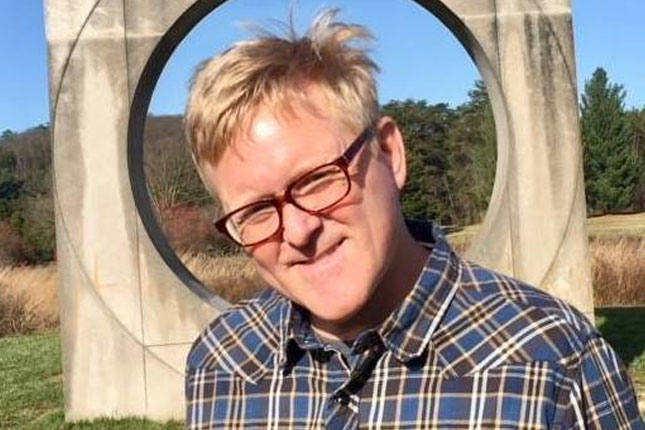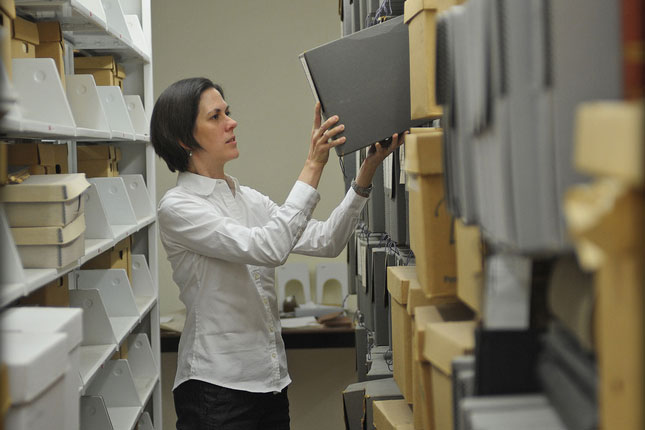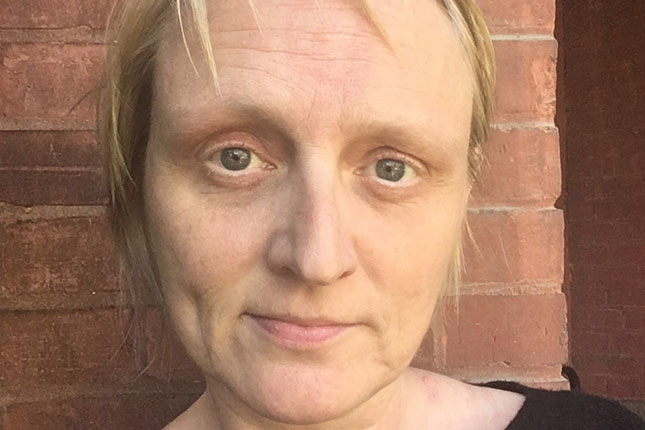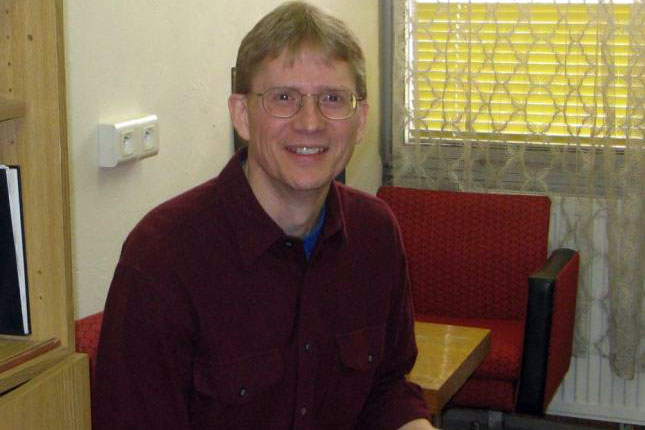Digital Humanities Research Institute (DHRI)
Digital Humanities Research Institute (DHRI)
The Digital Humanities Research Institute (DHRI) is a two-day residential workshop in the digital humanities, hosted by the University of Louisville. This event is part of a much larger project, spearheaded by the CUNY Graduate Center, that aims to nurture and grow an international network of digital humanities communities through skills-sharing and hands-on workshops.
Our DHRI provides a space for a diverse set of scholars interested in the digital humanities to practice core skills in storymapping, GIS, machine learning, and NLTK. No prior knowledge is assumed -- the goal here is not to master but to experience the tool, and to then participate in inventive and capacious discussions that imagine how such a tool might be put to use in the contexts of research, teaching, and service.
This year’s DHRI will take place on May 8 and 9, and is generously funded by CCHS, English, History, and Humanities.
Participants

Kyle Barnett
Kyle Barnett is an Associate Professor in Media Studies and Director of Graduate Programs in Bellarmine University’s Department of Communication. His work focuses on sound media, media history, cultural industries and material culture. He is director of the Bellarmine Media Archive, a digital humanities initiative that will provide access to the university’s media collections. Barnett has gathered information on the state of Kentucky’s radio holdings in his ongoing role as member of the Radio Preservation Task Force, part of the Library of Congress’ National Recording Preservation Board. He has published articles on the phonograph as furniture, the retailing of film music from Alfred Hitchcock’s Spellbound, and discursive connections between listening and eating via the “gustasonic.” His forthcoming book is Record Cultures: the Transformation of the U.S. Recording Industry (University of Michigan Press, February 2020).
DJ Biddle
DJ Biddle is the GIS Research Manager for the University of Louisville Center for Geographic Information Sciences. He is a passionate advocate for the power of maps and geovisualization as a platform for telling more engaging stories about the broad spectrum of problems society faces. From the physical environment to social issues and their many intersections and entanglements, DJ partners with faculty and student scholars across a range of disciplines to develop rich analyses, visualizations, and web applications to enhance research projects and learning experiences. He also partners with organizations in the greater Louisville community to bring the power of GIS to projects that impact the lives and wellbeing of Louisvillians of all stripes. DJ holds an M.S. in Applied Geography from UofL and is certified as a GISP by the GIS Certification Institute.
A Glenn Crothers
A. Glenn Crothers is Associate Professor of History at the University of Louisville. He is the author of Quakers Living in the Lion’s Mouth: The Society of Friends in Northern Virginia, 1730-1865 (2012) and co-editor (with Andrew K. Frank) of Borderland Narratives: Negotiation and Accommodation in North America's Contested Spaces, 1500-1850 (2017). Between 2005 and 2014, he was also Director of Research at The Filson Historical Society, where he edited Ohio Valley History. Before coming to the University of Louisville in 2005, he taught at Indiana University Southeast, where he directed the Floyd County Oral History Program.
Carrie Daniels
Carrie Daniels, director of Archives and Special Collections (ASC), works to support the digitization of archival collections, the presentation of digitized and born-digital materials online, and the preservation of this content. She was first drawn to the archival field by the prospect of providing access to unique materials online, across borders and around the clock. Among her current interests are issues of context and the digital re-presentation of materials pulled from larger collections.
Heather Fox
Heather Fox is an associate professor, director of the Oral History Center and manuscript archivist at the University of Louisville Archives and Special Collections. In the fall of 2019 she co-taught a class with Dr. Lara Kelland called Women, Music, Archive that used digital humanities tools to document and interpret the local music scene from a feminist perspective. She also serves the university as the vice chair of the Commission on the Status of Women, a presidential advisory committee.
Terri Holtze
Terri Holtze is Head of Web Services for the University of Louisville Libraries. Her interests include improving access to unique items held by the University Libraries and web mapping applications.

Rachel Howard
Rachel Howard joined University of Louisville Libraries in 2006 as their inaugural Digital Initiatives Librarian. Based in Archives and Special Collections, she coordinates the digitization, digital presentation, and digital preservation of archival collections and other library resources, managing our Digital Collections contributing to the development and growth of ThinkIR, the University of Louisville's Institutional Repository.

Lara Kelland
Lara Kelland is an Assistant Professor of US and Public History and Comparative Humanities at the University of Louisville, where she also directs the Public History graduate concentration and certificate. Her book, Clio’s Foot Soldiers: Twentieth-Century US Social Movements and the Uses of Collective Memory (University of Massachusetts Press, 2018) traces the use of history in 20th century social movements, including Civil Rights, Black Power, Women’s Liberation, Gay Liberation, and American Indian Movements. In it, she argues that grassroots activists helped shape the field of public history and the democratic practices embraced by many cultural organizations. She teaches courses on public history, oral history, digital history, historical methods, and the history of gender and sexuality in the U.S.
Prior to coming to Louisville, she worked with on public history projects in various community-based and cultural organizations. She believes mightily in the power of history to shape and nurture community. Since she has been in Louisville, she directed a three-year project documenting and interpreting the history of the Parkland neighborhood in West Louisville. She is also the curator for the upcoming exhibit and digital map on the Kentucky civil rights movementat Kentucky Center for African American Heritage. Her new research project is engaging oppositional collective memory and heritage tourism in Puerto Rico.

Mark Lauersdorf
Mark Richard Lauersdorf, associate professor of linguistics at the University of Kentucky, works primarily in the wonderfully interdisciplinary worlds of historical sociolinguistics and corpus linguistics. His theoretical and methodological orientation involves data-driven corpus-based sociolinguistic investigation of historical patterns of language variation and change using statistical and visualization methods to aid data analysis. In this work, he ponders optimal frameworks for data collection, annotation, and markup of historical language data, and innovative uses of statistical and visualization software and digital technologies to create interfaces for the presentation, visualization, and interpretation of historical texts. As director of the Collaboratory for Research in Computing for Humanities at the University of Kentucky, he has the pleasure of working with colleagues across the humanities, arts, and social sciences on a broad range of research infrastructures and projects for the promotion and implementation of theories, methods, tools, and models of digital research and scholarship.
Mark Mattes
Mark Alan Mattes is a faculty member in Department of English at the University of Louisville. His work on eighteenth and nineteenth-century writing media has appeared in Early American Literature and Early American Studies and will appear in the collections Handwritten Newspapers as an Alternative Medium and Apocalypse in American Literature and Culture. He is currently working on a book manuscript titled Archival Apocrypha: Indigenous Writing and the Figure of Logan in Colonial and Native American History, and in spring 2019 he will lead an international symposium, The Futures of Handwriting, at UofL and The Filson Historical Society.
Erin McCabe
Erin McCabe is the Digital Scholarship Library Fellow at the University of Cincinnati Libraries. She previously held positions at Baruch College, Long Island University, and is a member of the NASA Datanauts. She received her MLIS with a specialization in digital humanities from the Pratt Institute in New York, and her BA in French studies from Concordia University in Montreal. She has worked on a wide range of digital projects and at the DSC, Erin will be responsible for organizing and leading the research efforts of our 10 new “catalyst teams” support by the Mellon grant.
Frances McDonald
Frances McDonald is Assistant Professor of English at the University of Louisville. Her research and teaching focus on twentieth-century American literature and film, critical theory, and digital humanities. Her current book project examines the relationship between representations of laughter in postwar American literature and film, and the “cracking up” of the subject in poststructuralist theory. She is the co-editor of thresholds, an experimental digital journal for critical/creative scholarship.
Carrie Mott
Carrie began with the Department of Geography and Geosciences at the University of Louisville in August, 2018. Her research centers on questions of collaboration and conflict across spaces of racialized difference. Her current primary research project addresses the connections between settler colonialism and Columbia River Basin reclamation projects in the United States Pacific Northwest. Through looking at the legislation of historical conflicts over property rights and access to water between Native American groups and white settlers, she show how racialized nation-state processes that began in the 18th and early 19th centuries continue to shape access to, and management of, Columbia Basin waterways. She aspires to incorporate digital humanities into both her research and teaching and looks forward to learning more.
Rebecca Pattillo
Rebecca Pattillo is the Metadata Librarian for Archives and Special Collections at the University of Louisville in Kentucky. She serves on the campus wide Digital Humanities Working Group and the University Library’s Diversity and Inclusion Advisory Group. She is also co-chair of the Kentucky Council on Archives. Representative of her dual master's in public history and library sciences, she is interested in community archives, accessible digital collections, archival labor ethics, and imparting the importance of multicultural collections to create a more accurate and inclusive historical record.
Sarah Watson
Sarah is the Geospatial Services Specialist for The University of Kentucky Libraries. In her role, she works with the maps and aerial imagery housed at the Gwen Curtis Map Collection and assists people with accessing and interpreting the items. Additionally, she is working to bolster the GIS services and support offered by UK Libraries by developing various workshops and offering one-on-one consultations. Overall, she views her role as helping to demystify geospatial technologies to encourage people to feel empowered to work with geospatial data. In addition to working with cartographic materials, she is always interested in learning about different digital tools and projects that others are developing and thinking about ways for creative collaborations.
Jason Zahrndt
Jason Zahrndt works as the digital media consultant for the Delphi Center for Teaching and Learning, and he coordinates the Digital Media Suite in Ekstrom Library. In previous positions as a college English instructor and college librarian, he sought ways for students to engage with digital media and tools across many learning management systems and web-based platforms. Jason continues this goal as he works with faculty to design and implement digital assignments for on-ground and online courses.














